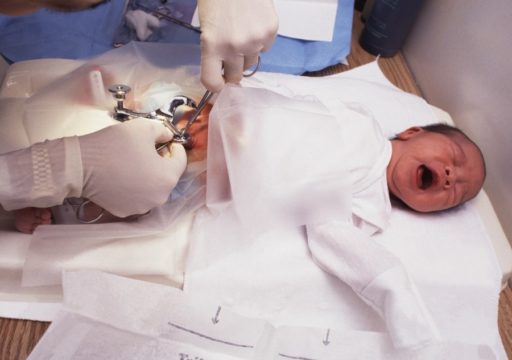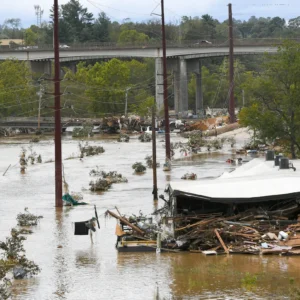Again, as in my previous post, Yehuda HaLevi,
My heart is in the East— and I am at the edge of the West.
Ten centuries later, in the aftermath of Israel’s Six-Day War in 1967, Yehuda Amichai, celebrated poet of Jerusalem, writes,
This year I traveled a long way to view the silence of my city. A baby calms down when you rock it, a city calms down from the distance. I dwelled in longing. I played the hopscotch of the four strict squares of Yehuda Ha-Levi: My heart. Myself. East. West.
HaLevi never made it to Jerusalem. Amichai did. In 1936, when Amichai was twelve-years-old, his family immigrated to Palestine from Würzburg, Germany. Home at last. Home? “We forget where we came from,” writes Amichai in “Jews in the Land of Israel.” “Our Jewish / names from the Exile give us away…” Our names give us away—to others and ourselves: outsiders.
What’s your name, they asked. “Rick.” What’s your name, they asked. “Rick.” I had just arrived in Israel. July,1976. One of seventy volunteers from the U.S., I was settling into the Mercaz Klitah, Absorption Center, in Kiryat Shimona. One of Israel’s development towns in the north, situated at the foot of the Naphtali Mountains and close to the border with Lebanon, Kiryat Shimona was then a working class city. What’s your Hebrew name? As far as I knew, I didn’t have a Hebrew name. I wasn’t given one at birth. You will be Rafi, they said.
“You have a name you did not ask for,” writes Edmond Jabès.
In the diaspora, a Jewish boy’s Hebrew name is revealed at his bris. Bris: Ashkenazic (Jews of Central and Eastern Europe) pronunciation of the Hebrew word brit, covenant. The full term for the ritual: brit milah, covenant of circumcision. God commands Abraham, “Every male among you shall be circumcised. It shall be a sign of the covenant between Me and you. Whoever is eight days old shall be circumcised, every male throughout your generations” (GEN 17:11-12).
I don’t remember my circumcision. My mother doesn’t, either. I was born in The California Hospital, Los Angeles in 1953. Born with a heart condition. Endocardial fibroelastosis. I’ll never forget that, the diagnosis, my 91-year-old mother says. A few days after my brit, my biological father, a Christian Scientist, left us, me and my mother, with no money, no way for mother to support herself or her newborn first child. I suppose that in the chaos of those days, giving me a Hebrew name wasn’t a priority.
“Circumcision does it to us,” Amichai writes in “Jews in the Land of Israel.” Circumcision writes us into the Story.
Circumcision does it to us, as in the Bible story of Shechem and the sons of Jacob, so that we go on hurting all our lives.
Of all the circumcision stories he could have alluded to—Abraham’s circumcision at the age of ninety-nine!, the near killing of Moses for at first failing to circumcise his son Eliezer—Amichai chose the most troubling. Jacob’s daughter, Dinah, is raped by Shechem. But Shechem was in love with Dinah and wished to marry her. Jacob’s sons insist that Shechem and all the men of his town be circumcised; only then will they consent to the marriage. On the third day after the circumcision, while the men of Schechem are still recovering, Jacob’s sons murder them and plunder their town. Jacob is not pleased. “You have brought trouble on me,” Jacob says, “making me odious among the inhabitants of the land, the Canaanites and the Perizzites; my fighters are few in number, so that if they unite against me and attack me, I and my house will be destroyed.” Into this story, too, we are written.
The poem concludes,
Spilled blood is not the roots of trees but it’s the closest thing to roots we have.
Home, or the closest thing we have to home: where blood has been spilled. We’ve spilled our own blood: circumcision. Our blood has been spilled by others: Europe, the Middle East, America…. We’ve spilled the blood of others: Shechem.
“Circumcision does it to us”: writes us into the Story, the whole Story.
Let scripture be your Eden, writes Dunash ben Labrat in the mid-tenth century. In our scripture, our Eden, we weep, as in Psalm 137:
By the rivers of Babylon, there we sat, sat and wept, as we thought of Zion.
We resist:
There on the poplars we hung up our lyres, for our captors asked us there for songs, our tormentors, for amusement: “Sing us one of the songs of Zion.”
How can we sing a song of the LORD on alien soil?
We vow:
If I forget you, O Jerusalem, let my right hand wither; let my tongue stick to my palate if I cease to think of you, if I do not keep Jerusalem in memory even at my happiest hour.
We remember:
Remember, O LORD, against the Edomites the day of Jerusalem’s fall; how they cried, “Strip her, strip her to her very foundations!”
We seek revenge:
Fair Babylon, you predator, a blessing on him who repays you in kind what you have inflicted on us; a blessing on him who seizes your babies and dashes them against the rocks!
Desire for revenge: that’s at home in scripture, at home in us. Oftentimes, we don’t act on it. Sometimes we do.
A decade after I left Jerusalem, I was chosen by a Hebrew name: Ya’akov (Jacob). When the first intifada, the Palestinian uprising against Israel, began in December 1987, I was in my next-to-last year of a PhD program, writing a dissertation, under the direction of Donald Justice, on American-Jewish poetry. Sometime early in my final semester in Spring 1988, a voice began speaking a poem through me.
When that stinking angel Ed, the smartest boy in violet shorts, lifted and dropped me to the mat, when that slob landed on me, I went deaf to the skinny birds who ringed the mat with jeers, heard only my breath escaping.
A high school wrestling match. Violet: that was our school color. I wasn’t on the team, but I did enjoy wrestling in gym. At first I didn’t know why, seventeen years after graduating from Cherry Hill High School West, I was writing about wrestling.
For a dizzy moment I mistook him for one of the dumbbell-tough thugs who flicks ashes at girlish boys, but then I flipped onto my safe belly and rose, ass first, to shake this nuisance from my back. He dropped me by the thighs this time and worked my shoulder blades to the floor. No prayer could save me. On the count of three, Ed rose like vapor and vanished down a dark corridor toward some book, no doubt, leaving me, the blessed son of Isaac, crushed on the matted earth from which my children have risen to take revenge.
The blessed son of Isaac: ah, that’s who’s speaking, biblical character Jacob. Defeated, yes—the Holocaust and many previous catastrophes Jews had experienced while living in the diaspora. Now, however, that they, we, are home, we have the power. We use that power—in Israel—sometimes wisely and justly, sometimes unwisely and unjustly.
Now when I am called to the Torah, I’m called by my Hebrew name, Ya’akov, the whole story my home.
Richard Chess directed the Center for Jewish Studies at UNC Asheville for 30 years. He helps lead UNC Asheville’s contemplative inquiry initiative. He is a board member for the Center for Contemplative Mind in Society. He’s published four books of poetry, the most recent of which is Love Nailed to the Doorpost. You can find him at http://www.richardchess.com





